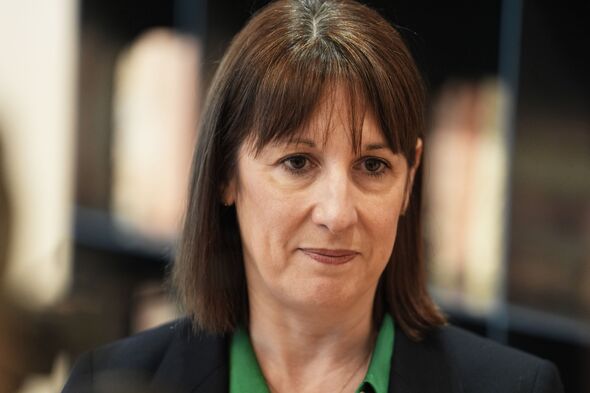
Banks and building societies which offer Cash ISAs have pushed back against Chancellor Rachel Reeves over any attempt to slash tax-free savings accounts.
Speculation continues to swirl that the Chancellor is set to meddle with ISAs in order to raise more money for the taxman and push people to invest in the stock market.
Currently, households can put up to £20,000 a year into ISAs, including Cash ISAs as well as stocks and shares ISAs.
It means that people can generate interest on their savings, even if it goes beyond their Personal Savings Allowance of up to £1,000 a year, without having to pay tax on the interest.
But the Chancellor has repeatedly refused to rule out cutting Cash ISA limits, with a suggestion from finance firm Fidelity that they could be reduced to just £4,000.
Asked about the potential limit on Thursday, Rachel Reeves told broadcasters: “It’s really important that we support people to save to achieve their aspirations.
“At the moment, there is a £20,000 limit on what you can put into either cash or equities (ISAs) but we want to get that balance right.
“I do want to create more of a culture in the UK of retail investing like what you have in the United States, to earn better returns for savers.”
There are also reports that finance firms are ready to push back against any potential changes.
The Building Societies Association has now called on the government to ‘save cash ISAs’ and says it ‘strongly rejects’ any move o cut them.
In an open letter to Rachel Reeves, chief executive Robin Fieth said that Cash ISAs play an ‘integral role’ for savers.
Mr Firth said: “I am writing to put on record how strongly we disagree with the recently reported calls from City firms to restrict Cash ISAs. We urge you to maintain this important savings incentive.
“Cash ISAs are a long-established cornerstone of the UK savings landscape, that are well understood and upon which many people rely.
“The implication made by many of those calling for curbs on Cash ISAs is that the savings are lying idle and not supporting economic growth. But banks, building societies, credit unions and other providers use the deposits to fund loans to households and businesses. Substantially reducing the role of Cash ISAs would have knock-on impacts on the price and availability of these loans if providers had to replace the funds from other sources.”
Mr Firth added: “Cash ISAs help consumers to achieve their savings goals. They play an integral role in the UK savings market, and have done for many decades. They represent a policy success upon which we should seek to build, rather than to curb.”
Tom Riley, director of retail products at Nationwide Building Society said : “Cash Isas not only help ordinary people save efficiently but enable us to fund our first-time buyer lending.”
Chris Irwin, director of savings at Yorkshire Building Society, said the decision to cut or remove Cash ISAs would “have detrimental impacts on the financial wellbeing of many, along with increasing their tax liability”.
Tom Selby, director of public policy at investment firm AJ Bell, told the PA news agency it is “hard to imagine” an Isa system that does not let investors hold a significant chunk of their savings in cash.
He added that reducing the limit “may seem superficially attractive but there is no guarantee this money would then be deployed in long-term investments”.
















